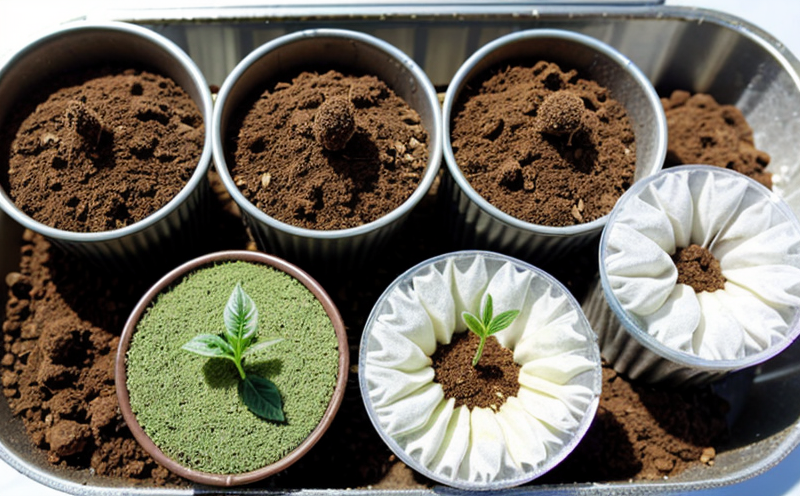Seed Weight (1000-Seed Weight) Testing
The 1000-seed weight test is a critical component in seed quality and germination testing, particularly important for ensuring the viability and uniformity of agricultural seeds. This parameter provides insight into the average weight of 1000 seeds from a given sample, which can help assess the overall health and productivity potential of the crop. The procedure involves meticulous sampling and precision measurement to ensure accurate results.
The importance of this test cannot be overstated in sectors such as agriculture and forestry where seed quality significantly impacts yield and profitability. A higher 1000-seed weight often correlates with better germination rates, stronger plants, and ultimately higher crop yields. This is particularly crucial for commercial growers looking to maximize their returns on investment.
In the context of agricultural testing, the 1000-seed weight test aligns with international standards such as ISO 3685:2014 and ASTM E691-13, which provide a framework for accurate and consistent measurements. Compliance officers can rely on these standardized procedures to ensure their operations meet regulatory requirements.
For R&D engineers, the ability to accurately measure 1000-seed weight is essential in developing new varieties of seeds that are more robust and resilient to environmental stresses. This test helps them refine seed selection criteria, optimize planting strategies, and improve overall crop performance.
The testing process begins with careful sampling from a larger batch of seeds, ensuring that the sample is representative of the entire lot. The seeds are then cleaned and dried to an optimal moisture content before being weighed using high-precision analytical balances capable of measuring down to milligram accuracy.
After obtaining the weight of 1000 seeds, it's essential to account for any variations in seed size or shape that might affect the outcome. This requires detailed documentation of the sample preparation process and adherence to strict protocols. Once the data is collected, it can be analyzed using statistical methods to determine whether the batch meets specified quality standards.
The results of this test are crucial not only for internal quality control but also for external stakeholders such as buyers, sellers, and regulatory bodies. It provides a reliable basis for making informed decisions about seed purchases or sales, ensuring that both parties have confidence in the product's integrity.
For procurement teams, having access to accurate 1000-seed weight data allows them to negotiate better terms with suppliers and ensure they receive high-quality seeds consistently. This reduces risks associated with substandard products and supports long-term relationships with trusted partners.
Customer Impact and Satisfaction
The 1000-seed weight test plays a vital role in enhancing customer satisfaction across various sectors within agriculture and forestry. By providing precise measurements of seed quality, this service ensures that customers receive products that meet or exceed their expectations.
Agricultural businesses benefit from improved reputation and increased sales due to consistent high-quality seeds. This translates into greater profitability and market share as satisfied clients become repeat buyers and recommend the product to others.
Forestry operations also see significant advantages, especially when dealing with large-scale planting projects where even slight variations in seed weight can have substantial impacts on final outcomes. Accurate testing helps minimize such risks, leading to healthier forests and more sustainable practices.
In terms of compliance, regulatory bodies appreciate the rigor associated with 1000-seed weight tests because they contribute to maintaining industry standards. This fosters a culture of accountability among producers, which is beneficial for all participants in the supply chain.
For researchers and developers working on new crop varieties or forestry initiatives, precise seed measurements are indispensable. They rely on this data to fine-tune their experiments, ensuring that every aspect of plant development receives optimal attention.
The ultimate goal is to create a seamless experience for customers by delivering dependable results every time. Whether it’s a small farm or an extensive reforestation project, reliable 1000-seed weight testing ensures consistent performance and satisfaction.
International Acceptance and Recognition
- ISO Standards: The ISO 3685:2014 standard sets the benchmark for accurate seed weight measurement, widely accepted globally. Compliance ensures seamless trade across borders.
- ASTM Protocols: ASTM E691-13 provides another set of internationally recognized guidelines that ensure consistency in testing methods worldwide.
The acceptance and recognition of these standards underscore the importance of precise 1000-seed weight testing. Agricultural and forestry industries rely on such tests to maintain quality control and meet international trade requirements. This ensures that products are consistent across different regions, enhancing trust among buyers and sellers alike.
By adhering to these internationally recognized protocols, laboratories can assure their clients of reliable results, fostering confidence in the global market. Whether selling domestically or exporting seeds internationally, accurate 1000-seed weight testing is key to maintaining a strong reputation and competitive edge.
Environmental and Sustainability Contributions
The 1000-seed weight test contributes significantly to sustainable agricultural practices by promoting efficient resource use. By ensuring that only high-quality seeds are planted, this service helps reduce waste while maximizing crop productivity.
Precision in seed selection reduces the need for excessive inputs such as water and fertilizers, contributing to more environmentally friendly farming methods. This aligns with broader sustainability goals aimed at minimizing environmental impact without compromising yield or profitability.
Moreover, accurate 1000-seed weight testing supports reforestation efforts by ensuring that seedlings are robust enough to thrive in their new environments. This increases the likelihood of successful tree establishment and long-term survival rates.
Incorporating this service into existing operations promotes a more sustainable approach to agriculture and forestry, helping to preserve natural resources for future generations. It also supports the development of eco-friendly practices that enhance biodiversity and improve ecosystem health.





